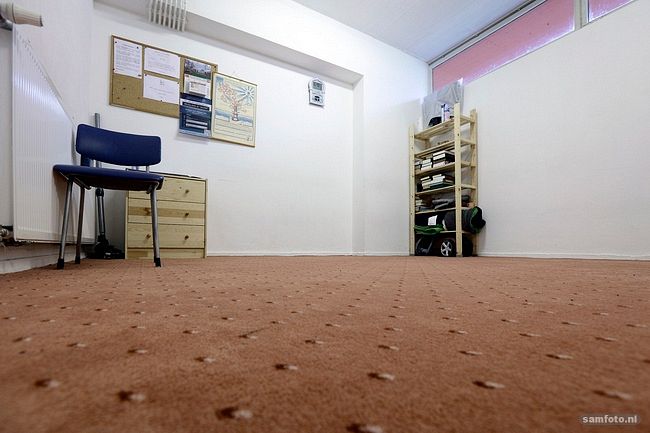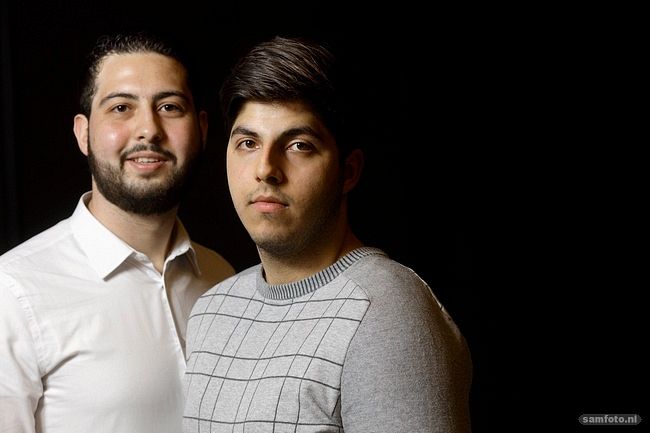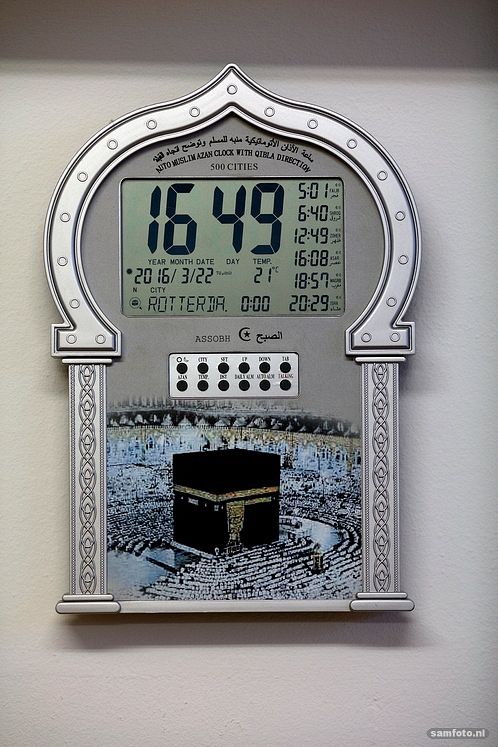Places for prayer and meditation, ‘silent rooms’ as they are often called, are a hot-topic across the country. TU Delft is an increasingly international university with roughly 20,000 students enrolled, as well as teaching and support staff, yet for some reason there is ambiguity surrounding these facilities and religious policy in general.
Only one room is listed on the TU Delft website, although you can actually find two inter-faith silent rooms on campus in the Faculty of Electrical Engineering, Mathematics and Computer Science (EWI) and Faculty of Aerospace Engineering (LR) buildings. They are often quite busy and, some believe, in need of an upgrade. Students can sometimes be found praying in other areas of campus as well, such as on the landings in the library stairwell.
Delta’s particular interest was piqued when signs saying ‘please do not use this corner for praying’ appeared in the campus library. Further investigation not only revealed inconsistencies in information about available silent rooms, but no clearly identifiable policy regarding prayer or religion on campus.
According to Ibo van de Poel, professor of ethics and technology in the Faculty of Technology, Policy and Management, currently each faculty or building deals with these questions as they see fit. Van de Poel is also the head of a recently approved working group hoping to fix this very problem. Approved by the Executive Board in February, it aims to investigate religious diversity on campus, assess whether there is a need for more silent rooms, and to develop a consistent campus-wide policy. The group will examine religious policies at other universities and interview stakeholders to assess whether changes need to be made on campus. The group expects to present preliminary findings to the board during the summer. “There is a felt need to have a university-wide policy rather than dealing with them on an ad-hoc or on a case-by-case basis,” said Van de Poel.
Facilitate
It has been argued that providing or maintaining religious facilities, such as silent rooms, is not in the purview of universities in the first place, particularly a technical university. Yavuz Cinek, a religious Dutch student in the second year of his bachelor’s degree in the faculty of Mechanical, Maritime and Materials Engineering and a founder of the Turkish students association Hezarfen, rejects the idea that religion should not be facilitated at a technical university. “I don’t think my religion blocks any kind of perspective, or any kind of practice while doing science,” he said.
Tolgahan Ögretmen, the public relations manager of Hezarfen and also a bachelor’s student in EWI, poses that facilitating religious students on campus could improve science. “If you don’t allow people to be different,” he said, “you don’t have innovation, and you don’t have technology.”
Van de Poel, too, sees these rooms as disconnected from the university’s technical work, that they are merely providing a service necessary for some staff, students and guests of the university. “The issue in my view is similar to that of any employer that has a diverse work force, because in some way you need to deal with the
wishes or needs of that group,” he said. These days most airports, even the small ones, and many large businesses provide inter-faith reflection facilities despite being non-denominational, and it is not unusual for universities to have several such rooms spread across their campus.
Free zones
Dap Hartmann, associate professor of Innovation Management and Entrepreneurship and sometimes columnist, doesn’t have a fundamental problem with universities providing such reflection rooms, as long as they are equally open to everyone religious or otherwise. He believes, however, that they should be free from symbols and overt or obvious prayer.
Several people Delta spoke to pointed out that the university provides a number of other non-academic services. Reverend Waltraut Stroh is a chaplain at the International Student Chaplaincy of Delft which acts as a meeting place for international students of all faiths. “If you offer psychological support, health support, sports support, it’s advisable to offer a space where you can develop spirituality. It’s a holistic approach.” The university also facilitates non-essential services, such as sports, music, and there are even several pubs on campus. Cinek believes that if these are available for some students, there should be silent rooms provided for others. “When I do my prayer, I feel more comfortable… I try to find my relaxation in those moments. If that can help me do my work, or study better, why not?” he said.
Secular society
The lack of a religious policy and limited facilities at TU Delft is likely the result of the Netherlands being a fairly secular society. However, as a university trying to attract internationals, perhaps it is time to update. “With the international status of TU Delft comes diversity and this includes religious diversity,” said
Irene Haslinger, secretary of the EWI faculty and the working group. According to Cinek, “the [EWI] room was created in the 90s for Iranian students, and since then TU Delft has evolved considerably.” Reverend Stroh also stated that while she believes providing or upgrading such rooms is not an obligation of the university, it does reflect how seriously they take their students, particularly international students, many of whom come from more religious societies.
No ‘Muslim issue’
There is a perception that silent rooms are a ‘Muslim issue’. This may be due to the fact Muslim prayer is more visible than others. Hartmann thinks silent rooms should be free of obvious prayer because, “if people start kneeling, bending over, stuff Muslims are supposed to do I wouldn’t feel comfortable.” These rooms are open to everyone and are not only used by Muslims. As Cinek points out, you can often find Buddhist rituals and Muslim prayer happening side-by-side in the LR Silent Room. They are not necessarily exclusively a religious issue either. The University of Amsterdam approved five new silent rooms at the start of March due to the demands of students, some of whom pointed out that as well as prayer, such rooms can be a place for relaxing and stretching, which can help prevent burn-out. They would also be suitable spaces for people who practice mindfulness, which is taught at both Sports & Culture and by the TU Delft counseling service.


Inadequate
A number of students agreed that the current silent rooms are inadequate. The EWI silent room is often full or occupied, particularly at Muslim prayer times, requiring people to wait outside, and it is not particularly well ventilated as Dr. Henk Polinder from the EWI faculty pointed out. The room at LR is also quite small. Ögretmen, added that the distance of these rooms is an inconvenience for people on the other side of campus. At the Faculty of Architecture and the Build Environment, he pointed out that you would have to walk about 20 minutes to get to the nearest prayer room.


Not everyone believes that there is a problem. Master’s student and board member of the Iranian Students Society of TU Delft, Hamed Abolhadi considers the current set-up more than sufficient, and even worries a bigger space in EWI would turn it from a silent room to a gathering place, potentially isolating religious students. “Maybe in other faculties a small room is necessary but on the main campus it is enough,” said Abolhadi. With the EWI building closed on weekends however, neither he nor anyone else can use the room.
The working group is still in its infancy, and any final decisions will rest with the Executive Board. In the meantime, religious people will continue to take their meditative moments in the sometimes busy silent rooms, quiet corners of campus, or just wait until they return home.



Comments are closed.